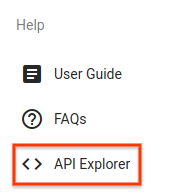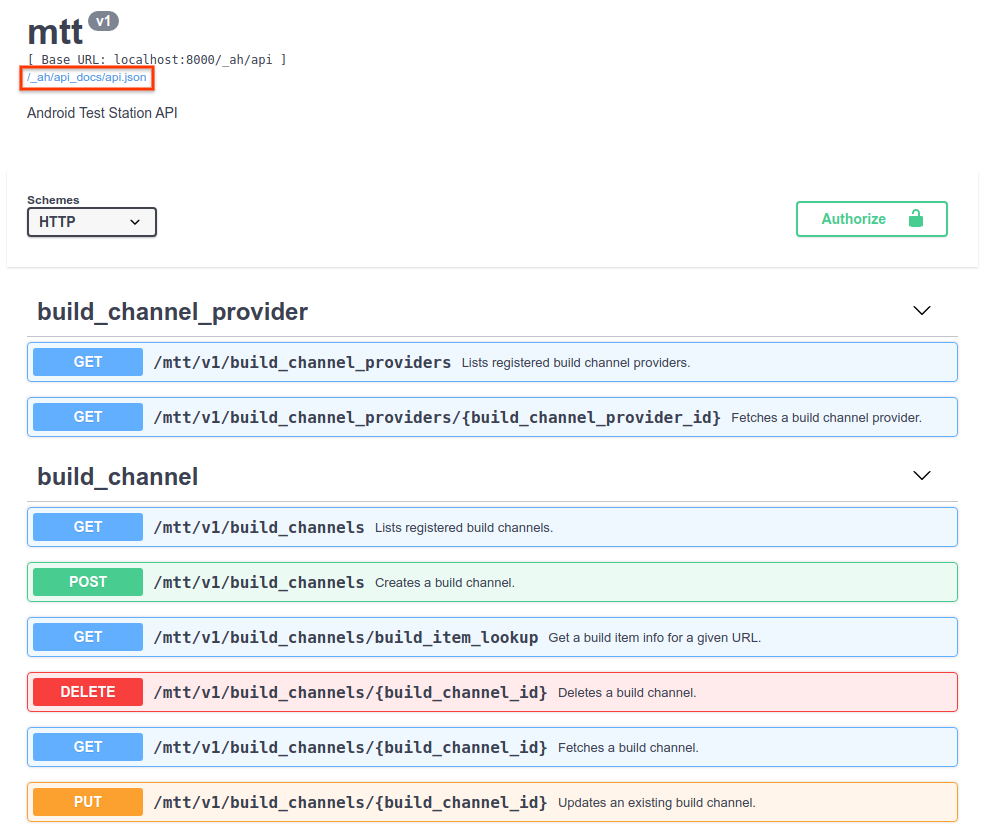Aby zachować zgodność z naszym modelem rozwoju gałęzi głównej i zapewnić stabilność platformy w ekosystemie, w II i IV kwartale 2026 r. opublikujemy kod źródłowy w AOSP. Do tworzenia i współtworzenia AOSP zalecamy używanie android-latest-release zamiast aosp-main. Gałąź android-latest-release manifestu zawsze będzie odnosić się do najnowszej wersji przesłanej do AOSP. Więcej informacji znajdziesz w sekcji Zmiany w AOSP.
Interfejs API OmniLab ATS
Zadbaj o dobrą organizację dzięki kolekcji
Zapisuj i kategoryzuj treści zgodnie ze swoimi preferencjami.
OmniLab ATS udostępnia interfejsy API do planowania testów, sprawdzania postępów i nie tylko. Możesz ich używać do integrowania Test Station z przepływami pracy i usługami.
Materiały referencyjne interfejsu API
Interfejs OmniLab ATS jest oparty na architekturze REST, korzysta z adresów URL zorientowanych na zasoby i obsługuje dane zakodowane w formacie JSON.
Wersja R12 wprowadza narzędzie Google APIs Explorer, które dokumentuje punkty końcowe interfejsu API, w tym ich parametry i odpowiedzi. Aby wypróbować interfejsy API, możesz użyć narzędzia Google APIs Explorer.

Rysunek 1. Link do narzędzia Google APIs Explorer

Rysunek 2. Narzędzie Google APIs Explorer z wyróżnioną specyfikacją OpenAPI
Generowanie klienta
Klientów OmniLab ATS możesz wygenerować ze specyfikacji OpenAPI znajdującej się w Google APIs Explorer (domyślnie pod adresem http://localhost:8000/_ah/api_docs/api.json).
Pobierz narzędzie OpenAPI Generator.
Uruchom to polecenie, aby wygenerować klienta w określonym języku programowania.
java -jar openapi-generator-cli.jar generate \
--input-spec http://localhost:8000/_ah/api_docs/api.json \
--generator-name LANGUAGE \
--output OUTPUT_DIRECTORY
Więcej informacji znajdziesz w dokumentacji OpenAPI Generatora.
Treść strony i umieszczone na niej fragmenty kodu podlegają licencjom opisanym w Licencji na treści. Java i OpenJDK są znakami towarowymi lub zastrzeżonymi znakami towarowymi należącymi do firmy Oracle lub jej podmiotów stowarzyszonych.
Ostatnia aktualizacja: 2025-12-03 UTC.
[[["Łatwo zrozumieć","easyToUnderstand","thumb-up"],["Rozwiązało to mój problem","solvedMyProblem","thumb-up"],["Inne","otherUp","thumb-up"]],[["Brak potrzebnych mi informacji","missingTheInformationINeed","thumb-down"],["Zbyt skomplikowane / zbyt wiele czynności do wykonania","tooComplicatedTooManySteps","thumb-down"],["Nieaktualne treści","outOfDate","thumb-down"],["Problem z tłumaczeniem","translationIssue","thumb-down"],["Problem z przykładami/kodem","samplesCodeIssue","thumb-down"],["Inne","otherDown","thumb-down"]],["Ostatnia aktualizacja: 2025-12-03 UTC."],[],[]]


